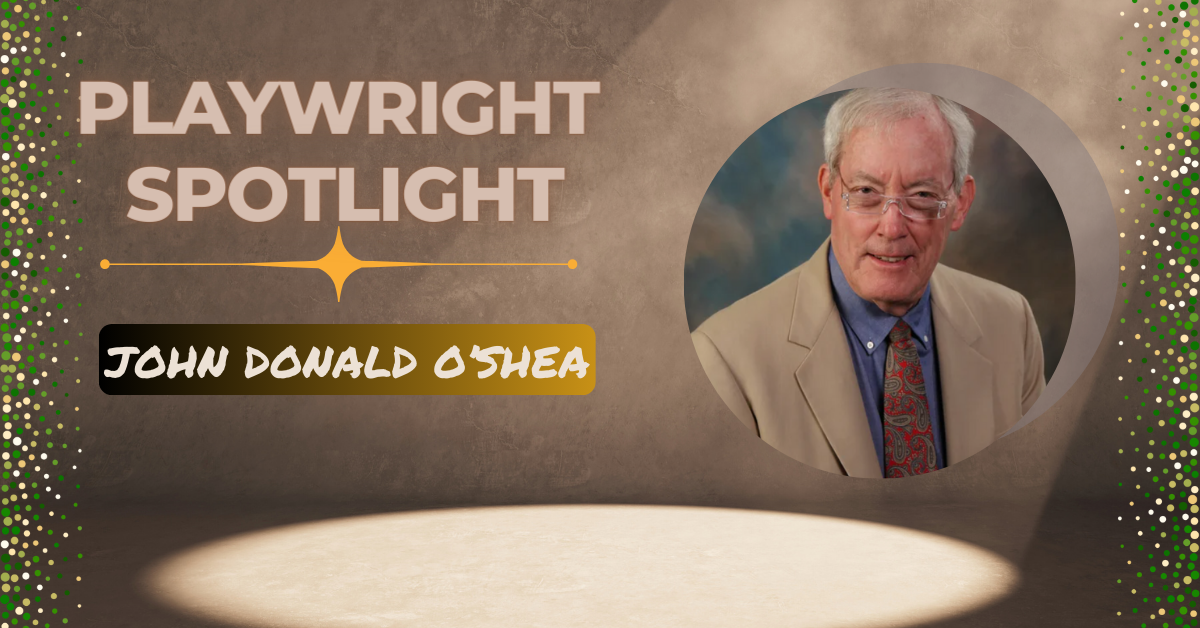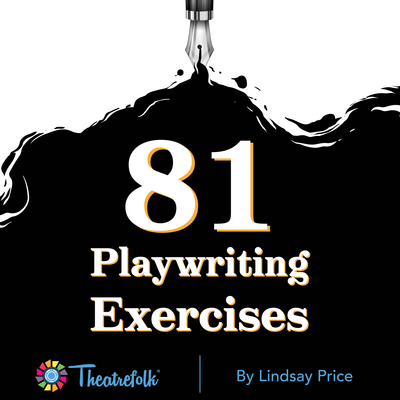Playwright Spotlight: Get to Know Taryn Temple
Welcome to "Playwright Spotlight" — your exclusive backstage pass to the creative minds crafting the incredible plays featured in our Theatrefolk catalogue. Discover the magic, quirks, and genius of the playwrights who help bring the stage to life. Let's meet one of these exceptional playwrights who offers the chance for your student performers to shine in their spotlight.
What inspired you to start writing plays specifically for high school & middle school students?
I was working as a counselor at a theater summer camp. We needed more scripts with humor and depth that showcased the talents of all of our campers.
Can you share a bit about your creative process when developing plays that resonate with students?
I fell in love with theater through acting, so my approach to writing a script was to create a story I would care about as an actor, and to develop characters that would be super fun for young performers to bring to life on stage. One of the biggest struggles I remember facing as a kid was wanting desperately to fit in, while trying to decide how much I was willing to change myself to do so. I see kids today wrestling with this same dilemma. So my plays explore this tension between who someone is on the inside, and how they are seen by those around them. My misfit superheroes are a prime example of this. At the same time, middle and high school kids are some of the goofiest, most creative people you will meet. I wanted to give the cast and crew a chance to laugh together and show off their silly side by injecting plenty of humor and freedom into the script, too. So, for example, I gave my superheroes bizarre powers that landed them in plenty of ridiculous situations.
Are there any challenges you face when writing for student performers, and how do you overcome them?
The biggest challenge I face writing for student performers is how quickly their slang goes out of fashion. Kids are eager to use the newest trendy phrases, but then they are passé in a year (or less!). In order to make the characters sound like real, authentic kids I tried to write using their slang, but now I read over scenes from years ago and that language has become dated. To try to fix this I am super flexible with directors and actors changing my scripts to fit their needs, so I am hoping today’s actors update the lines to reflect the way they speak now. For example, in several scenes I leaned hard into the hashtag trend. Adults still think that’s funny, but kids moved on from that years ago.
What themes or messages do you aim to convey through your plays?
One theme that resonates throughout my plays is that you shouldn’t judge someone until you get to know them. We can be quick to make snap judgments about the people around us, but if we take the time to get to know their stories we may see them in a whole different light. Another theme that threads through my work is to stand up for what is right, and to help those who struggle to stand up for themselves. Gertie Greene, one of my main characters, is seen as a bully by the whole school. But eventually we learn that she earned that reputation by defending students who were too scared to stand up for themselves.
How do you balance education and fun in your scripts?
Kids learn by doing. So my scripts keep them busy. Nearly everyone is on stage for most of the show, listening and reacting to the experiences of the other characters. I swing back and forth between humor and teachable moments often during my shows. Laughter opens us up to learning, and we are much more receptive to tender or earnest moments if we’ve laughed together first.
Can you share a memorable experience or feedback from a student performance that left an impact on you?
I had the privilege of seeing a performance of The Redemption of Gertie Greene that moved me to tears. At the end of the show, the cast and crew came onstage with posters on which they had written cruel words that had been said to them, that they had heard, or even that they had said to someone else. Several students read a statement they had prepared about choosing to use our words to help and heal rather than hurt those around us, and then they all turned their posters over. On the other side were words of kindness, support and encouragement. It was beautiful! The students came up with this idea themselves. It was poignant to see them take the essence of the play from the stage into their own lives.
Any advice for teachers or directors looking to choose engaging and age-appropriate plays for their student performers?
I think one important thing for directors to keep in mind is that kids are astonishingly profound one minute and complete goofballs the next. A show that blends the two will bring out the best in your performers. Also, every actor in the cast deserves a chance to shine. Everyone needs a character they can connect to and make their own. And if your crew believes in the story, too, they will go above and beyond to make it amazing.
What is your favourite play you've written so far?
The Redemption of Gertie Greene will always hold a special place in my heart. Her transformation from outcast to celebrated classmate moves me every time.
Anything else you'd like students and/or directors to know about you as a playwright?
First, I want to give credit to my original campers who performed these shows before they were published. They breathed life into my scripts and improved them immensely! Many of the best one-liners and the most ingenious ideas came from them. Second, my goal is to facilitate a fun and meaningful experience for your cast, crew and audience. Having worked at a theater camp I know that flexibility is key. If you need to change names, genders, lines, etc. to better reflect your own actors’ experiences, or make cuts for time I am very open to that. As long as your changes are in line with the spirit of the script, you can adapt what you need so the show fits your team.
Related Articles
81 Playwriting Exercises
by Lindsay Price
81 exercises that can be used to get students in the habit of writing on a regular basis.
How to Write a Play for your Students
by Lindsay Price
You’ve chosen to write a play for your students! Where do you start?
Resource Bundle - Playwriting
Use these 4 Playwriting drama teaching resources to make playwriting possible with your students. Great for warm-ups, prompts, writer's block and more!
.png)





